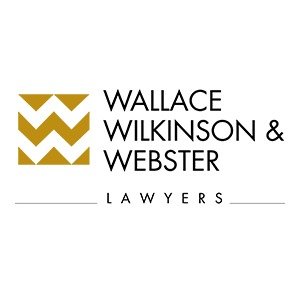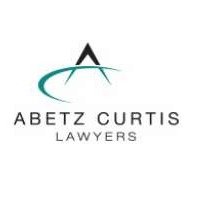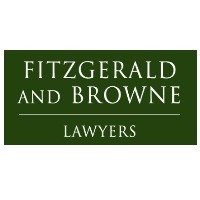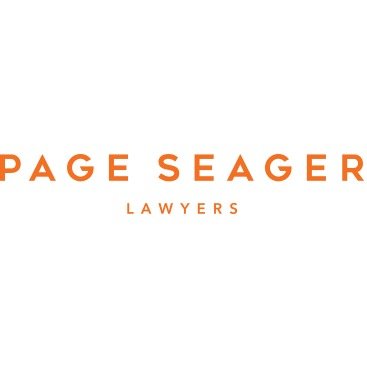Best Commercial Real Estate Lawyers in Hobart
Share your needs with us, get contacted by law firms.
Free. Takes 2 min.
Free Guide to Hiring a Real Estate Lawyer
List of the best lawyers in Hobart, Australia
About Commercial Real Estate Law in Hobart, Australia
Commercial real estate law in Hobart, Australia, involves legal aspects surrounding the acquisition, development, leasing, and sale of commercial properties, such as office buildings, malls, industrial properties, and more. The laws governing these transactions ensure that all parties meet their legal obligations and that the transactions are conducted fairly, efficiently, and legally. The demand for commercial real estate in Hobart has grown, influenced by economic development and the appeal of this picturesque city. Navigate this arena with the help of professionals who understand its unique commercial landscape.
Why You May Need a Lawyer
Engaging a lawyer can be crucial in various scenarios within commercial real estate dealings in Hobart:
- Property Transactions: Buying or selling commercial property involves complex negotiations, legal documentation, and significant investment, necessitating expert advice to avoid costly mistakes.
- Lease Agreements: Leasing commercial space requires drafting and reviewing leases to protect interests and avoid disputes.
- Dispute Resolution: Legal counsel is often necessary to mediate or resolve disputes, such as tenant-landlord disagreements or property boundary issues.
- Zoning and Land Use: Understanding local zoning laws and ensuring compliance can be crucial for development projects.
- Due Diligence: Experts can conduct thorough diligence, identifying any liabilities or legal restrictions on property.
Local Laws Overview
Several key regulations and legal areas are relevant to commercial real estate in Hobart:
- Planning and Development Act: Oversees the planning and development procedures in Tasmania, including property use and development proposals.
- Commercial Tenancy Act: Specifies the rights and responsibilities of landlords and tenants engaged in commercial leasing, outlining rules for rent, eviction, and lease agreements.
- Zoning Regulations: Determines specific uses allowed on a property, which can impact development and business operations significantly.
- Environmental Protection Laws: Addresses the environmental considerations and sustainability requirements for any commercial property or development.
- Stamp Duty and Taxes: Commercial property transactions in Hobart attract specific duties and taxes, critical to budgeting and financial planning.
Frequently Asked Questions
What is considered commercial real estate in Hobart?
Commercial real estate includes properties that are used solely for business activities, such as offices, hotels, retail spaces, industrial warehouses, and more.
Do I need a lawyer for a commercial lease agreement?
Yes, having a lawyer can ensure the lease agreement is fair, protect your interests, and prevent potential legal disputes.
How are commercial real estate transactions taxed in Hobart?
Transactions are subject to stamp duty, which is calculated based on the property value. It's important to consult with a legal expert to understand all applicable taxes.
What is due diligence in commercial property transactions?
Due diligence involves investigating a property to identify liabilities, ensure compliance with laws, and assess the property’s condition before making a purchase.
Are there specific zoning laws I need to be aware of?
Yes, zoning laws dictate the permissible use of land. Consulting with a lawyer can provide guidance on these regulations to ensure compliance.
What happens if there's a dispute between tenants and landlords?
Legal recourse may be sought for conflict resolution, where lawyers mediate or represent parties in tenancy disputes.
How can environmental laws affect commercial real estate?
These laws outline the environmental considerations, such as pollution control and sustainable development, impacting permissible property use and modifications.
What should I know about land titles in Hobart?
Properties in Hobart are registered under the Torrens Title system, providing a government-backed guarantee of property ownership details.
How do I ensure compliance with building codes?
Compliance requires adherence to local building codes. Legal experts ensure that the construction meets safety, design, and operational standards.
What factors should be considered in a commercial real estate investment?
Consider location, property condition, market trends, legal compliance, and financial viability, all of which legal guidance can assist with.
Additional Resources
For further assistance, consider these resources:
- Department of State Growth: Provides information and regulations on Tasmania’s economic policies and business operations.
- Tasmanian Planning Commission: Essential for understanding the planning and zoning laws within Tasmania.
- Real Estate Institute of Tasmania (REIT): Offers resources and support for understanding the Tasmanian real estate market and regulations.
- Legal Aid Commission of Tasmania: Offers legal information and support to Tasmanian residents.
Next Steps
If you find yourself in need of legal assistance in commercial real estate in Hobart, consider undertaking the following steps:
- Identify Your Needs: Clearly define the specific issues or needs you have, whether it’s transactions, leasing, zoning issues, or disputes.
- Consult Professionals: Engage with a lawyer specializing in commercial real estate to gain insights and formulate a strategy tailored to your needs.
- Prepare Documentation: Gather all relevant documents related to your property dealings, such as contracts, leases, and correspondence, prior to your legal consultation.
- Consider Financial Implications: Be aware of the potential cost implications, including legal fees, taxes, and other related expenses.
- Establish a Legal Relationship: Formally engage a law firm for representation to ensure you have legal guidance at every step.
Lawzana helps you find the best lawyers and law firms in Hobart through a curated and pre-screened list of qualified legal professionals. Our platform offers rankings and detailed profiles of attorneys and law firms, allowing you to compare based on practice areas, including Commercial Real Estate, experience, and client feedback.
Each profile includes a description of the firm's areas of practice, client reviews, team members and partners, year of establishment, spoken languages, office locations, contact information, social media presence, and any published articles or resources. Most firms on our platform speak English and are experienced in both local and international legal matters.
Get a quote from top-rated law firms in Hobart, Australia — quickly, securely, and without unnecessary hassle.
Disclaimer:
The information provided on this page is for general informational purposes only and does not constitute legal advice. While we strive to ensure the accuracy and relevance of the content, legal information may change over time, and interpretations of the law can vary. You should always consult with a qualified legal professional for advice specific to your situation.
We disclaim all liability for actions taken or not taken based on the content of this page. If you believe any information is incorrect or outdated, please contact us, and we will review and update it where appropriate.















